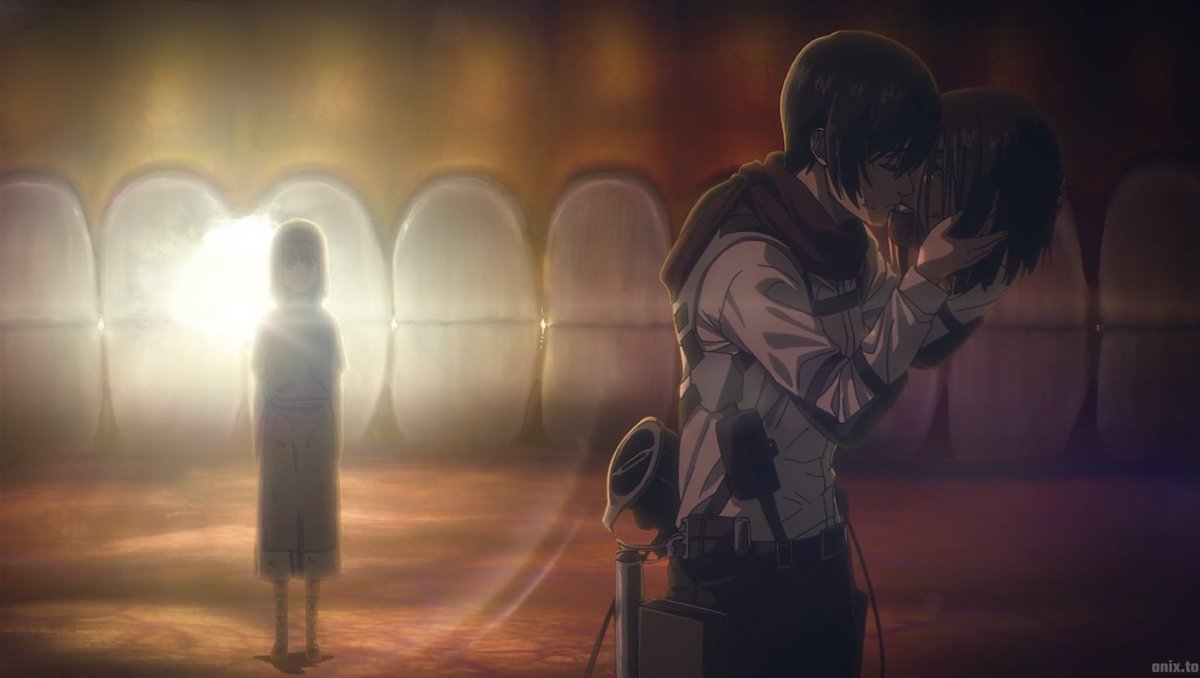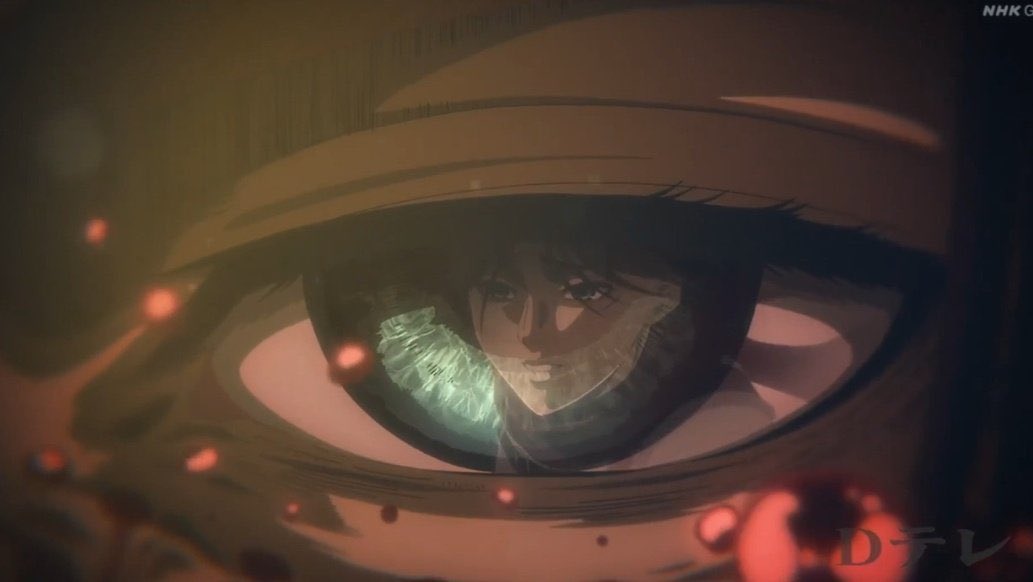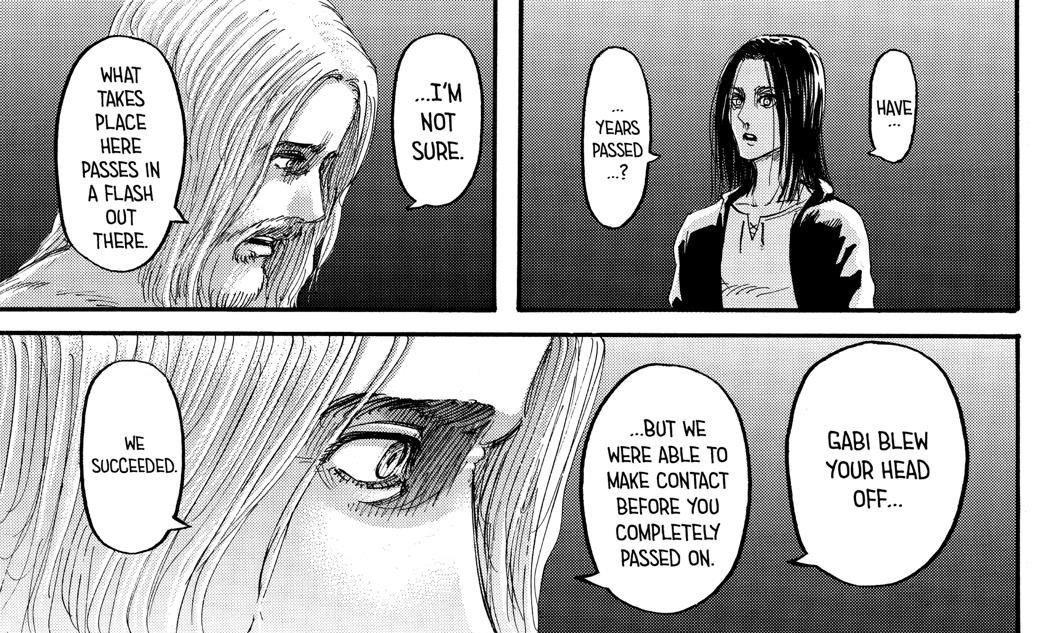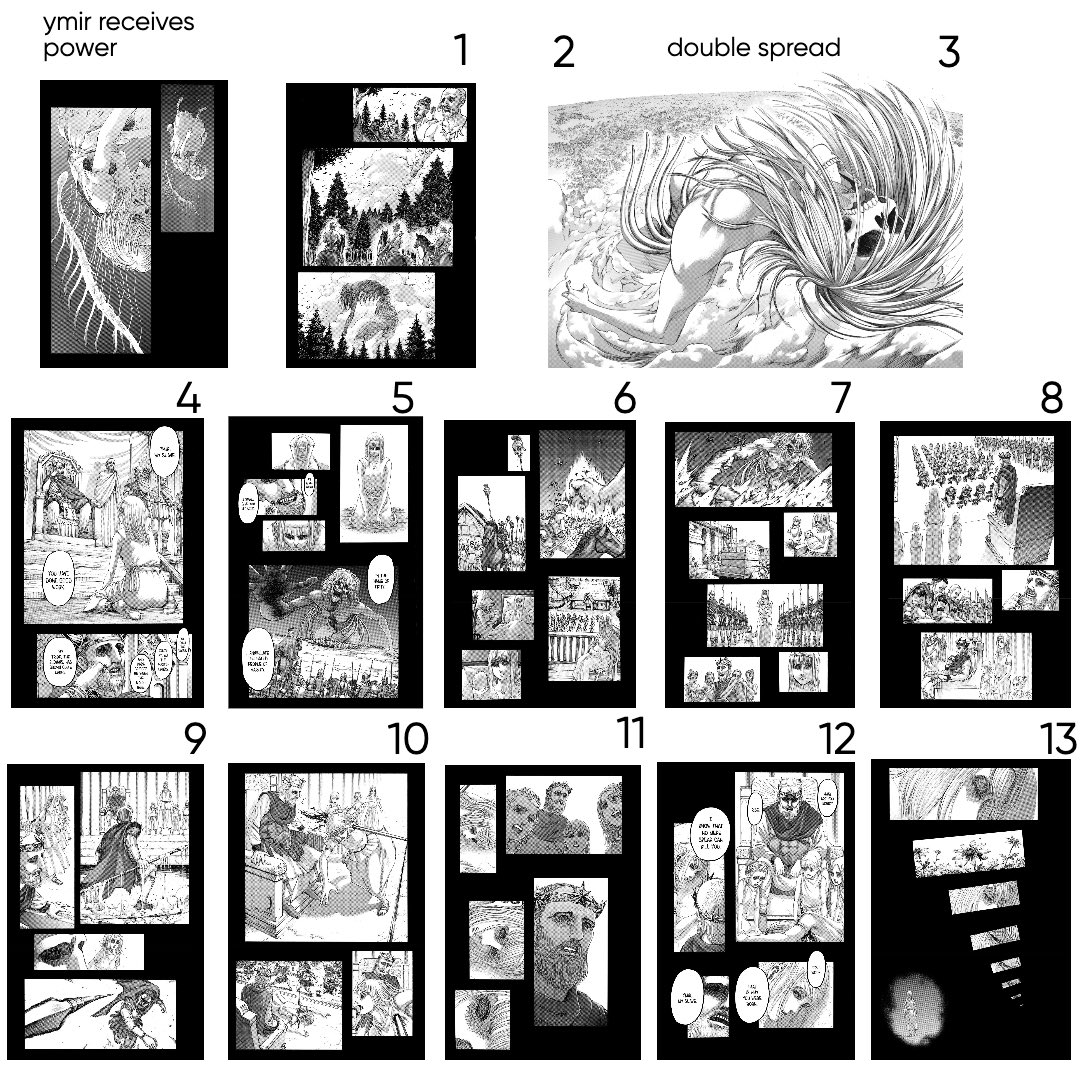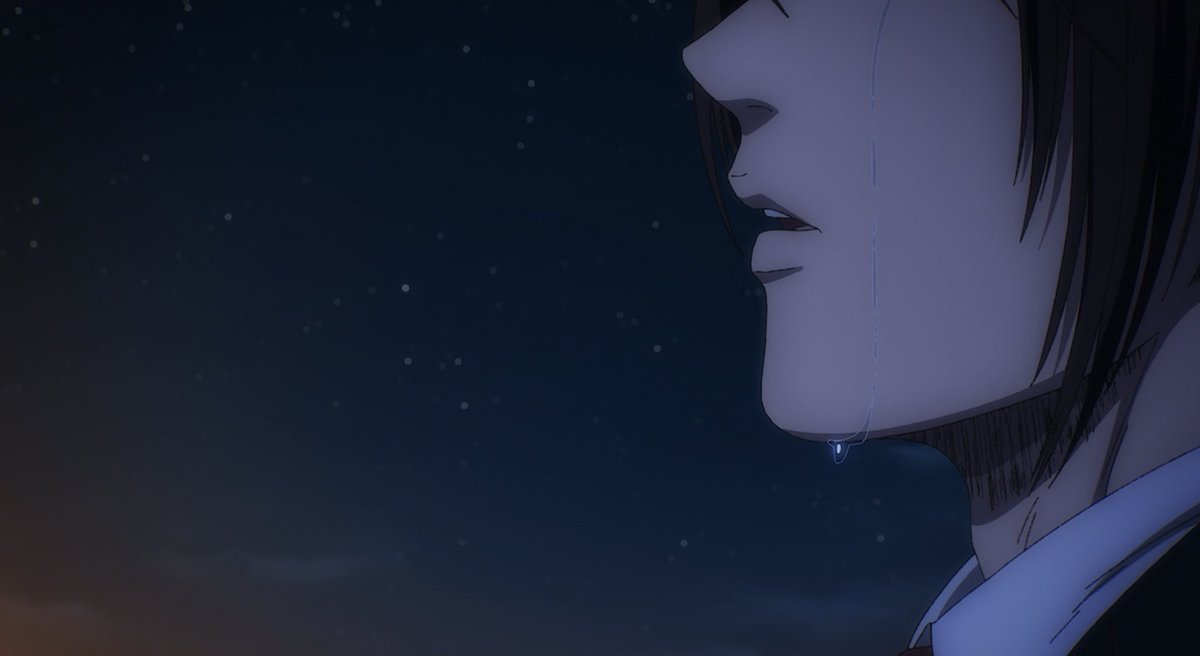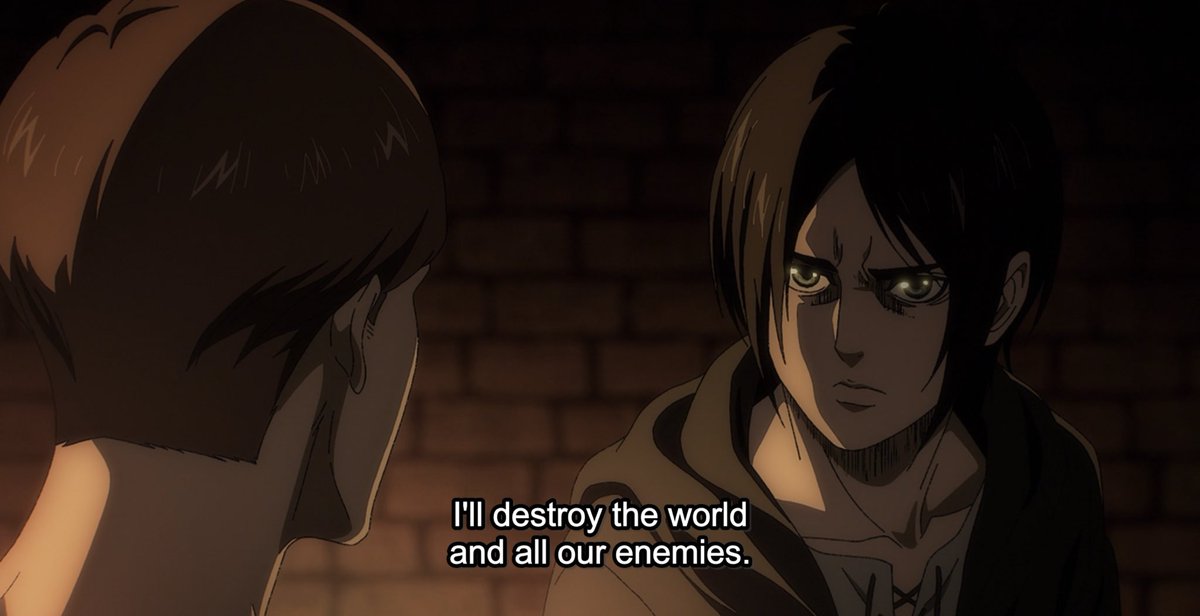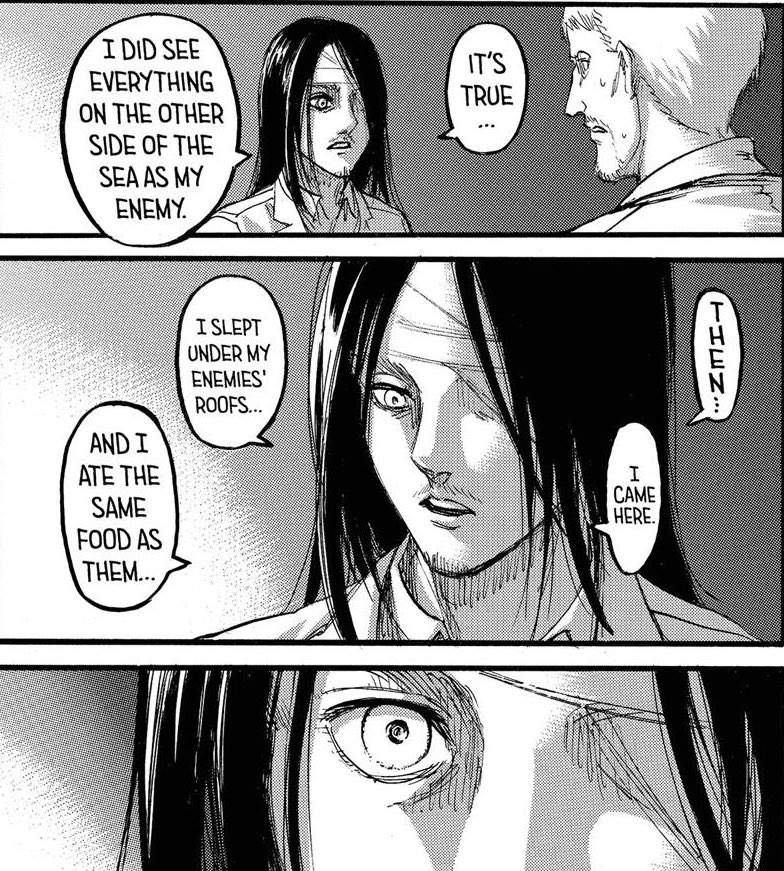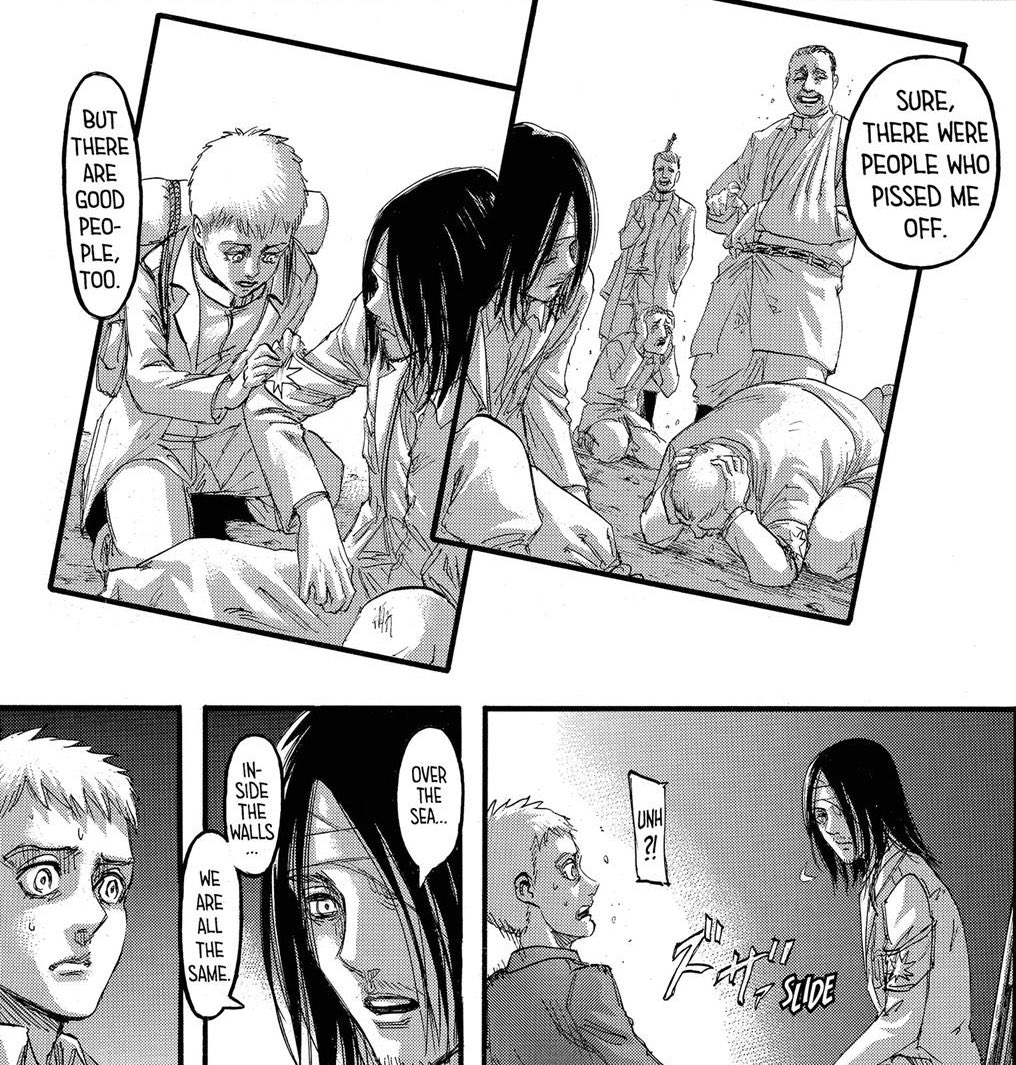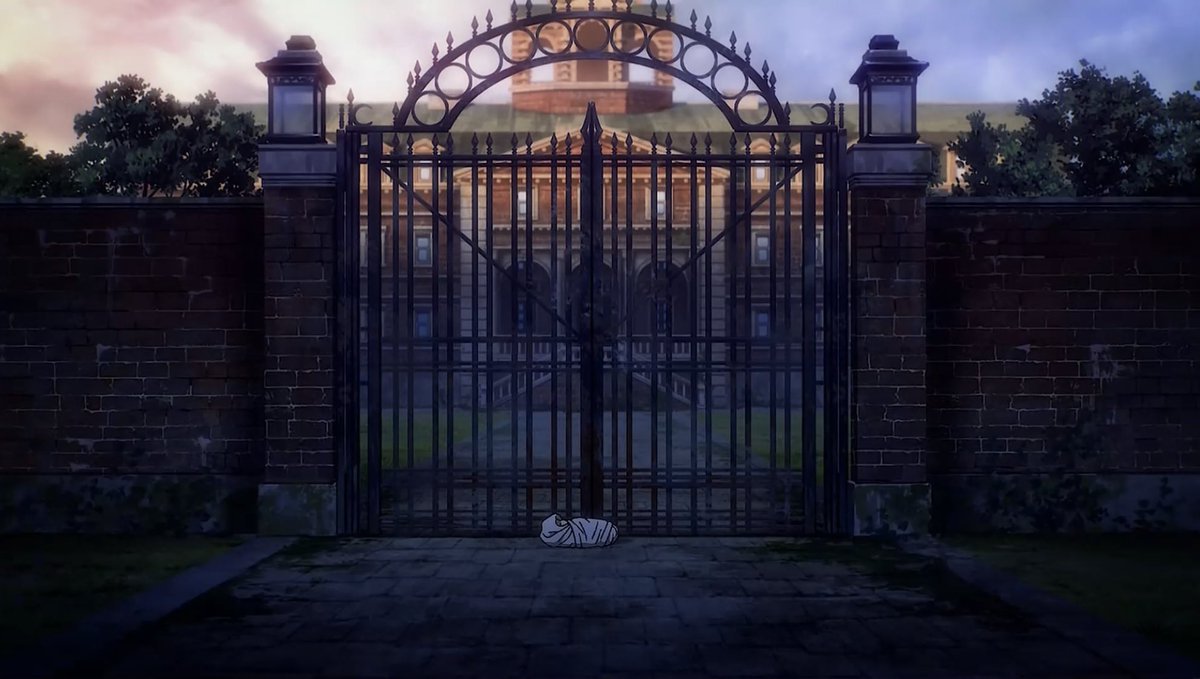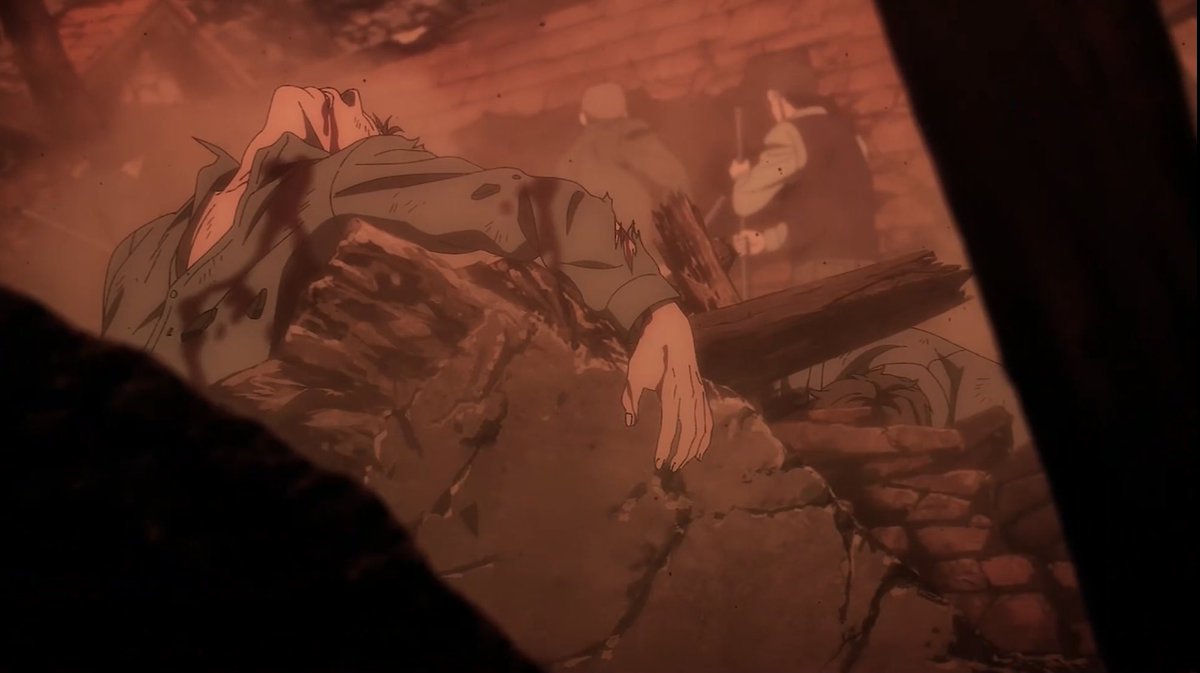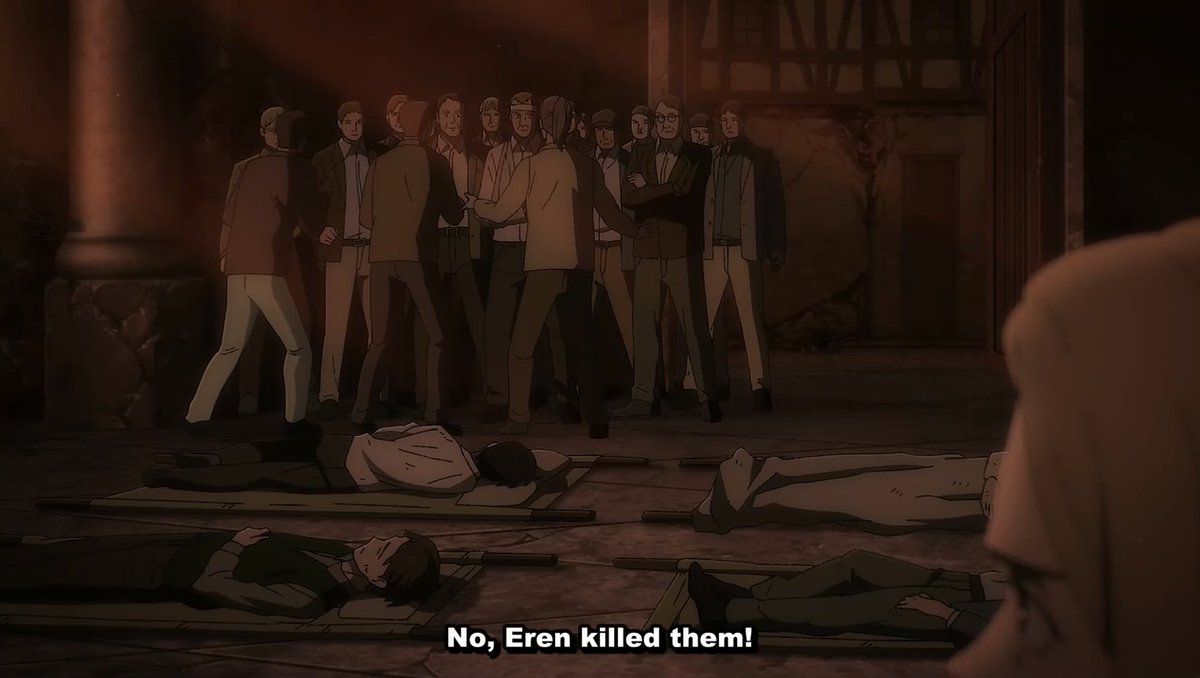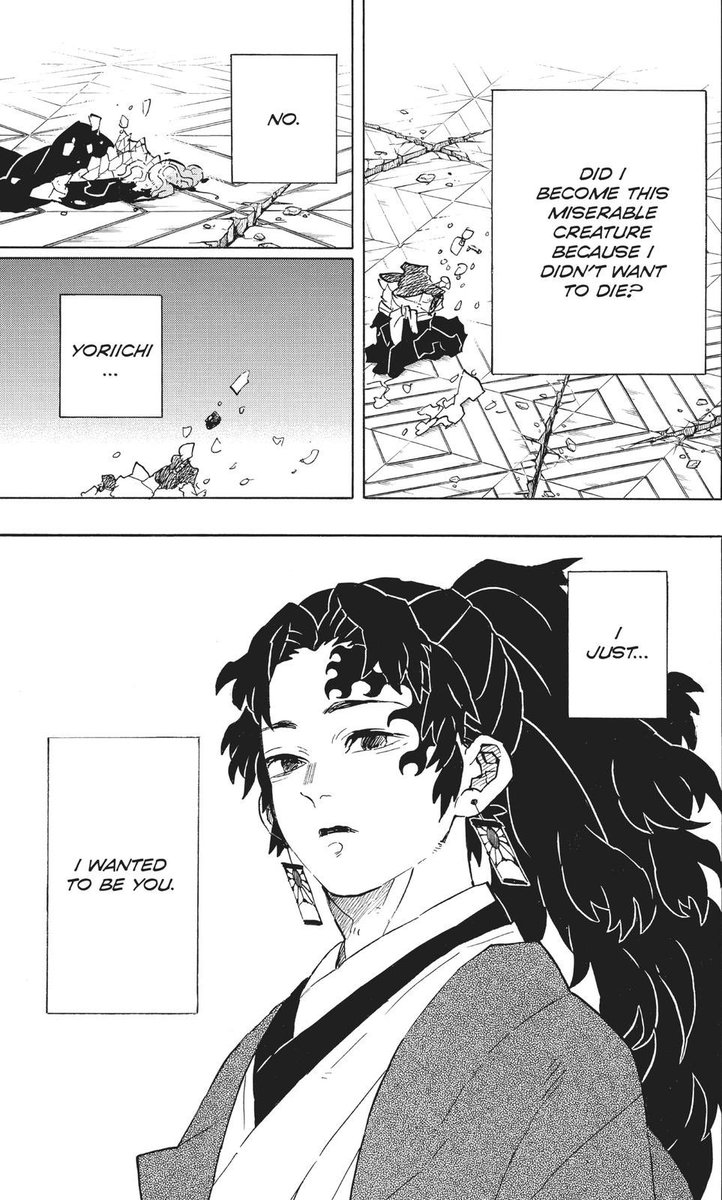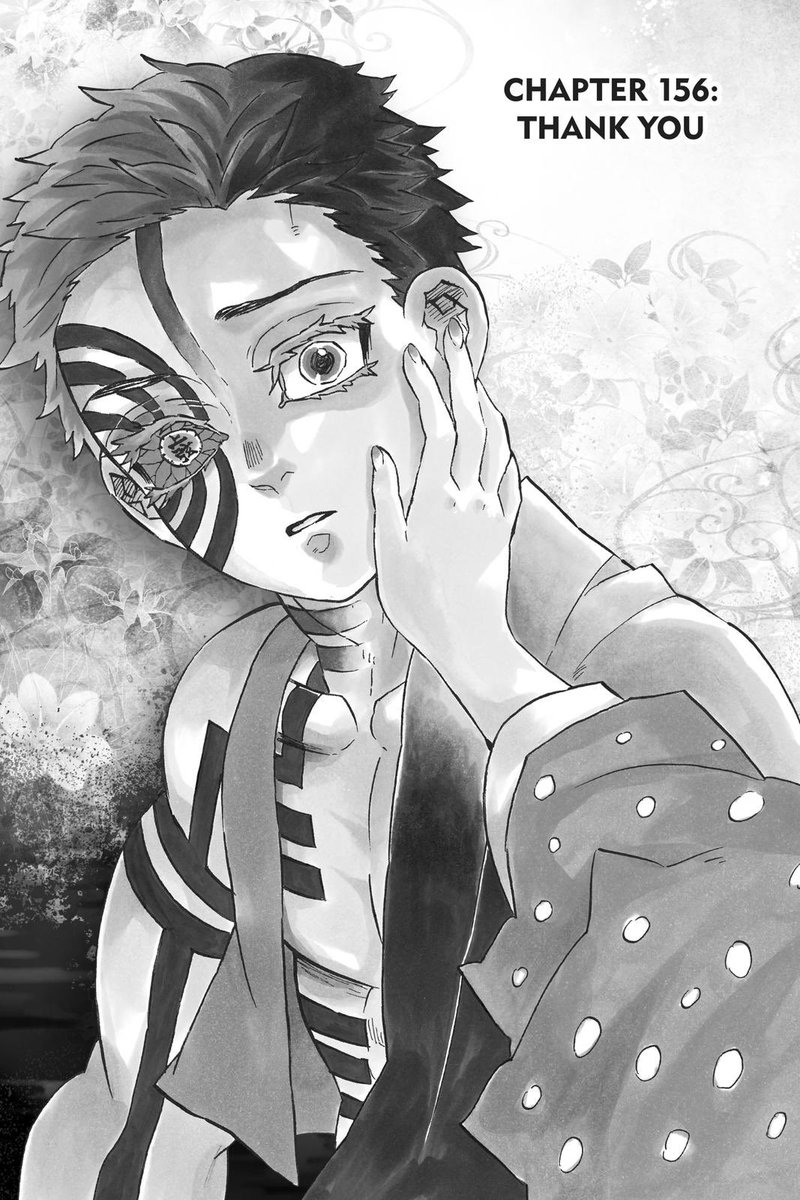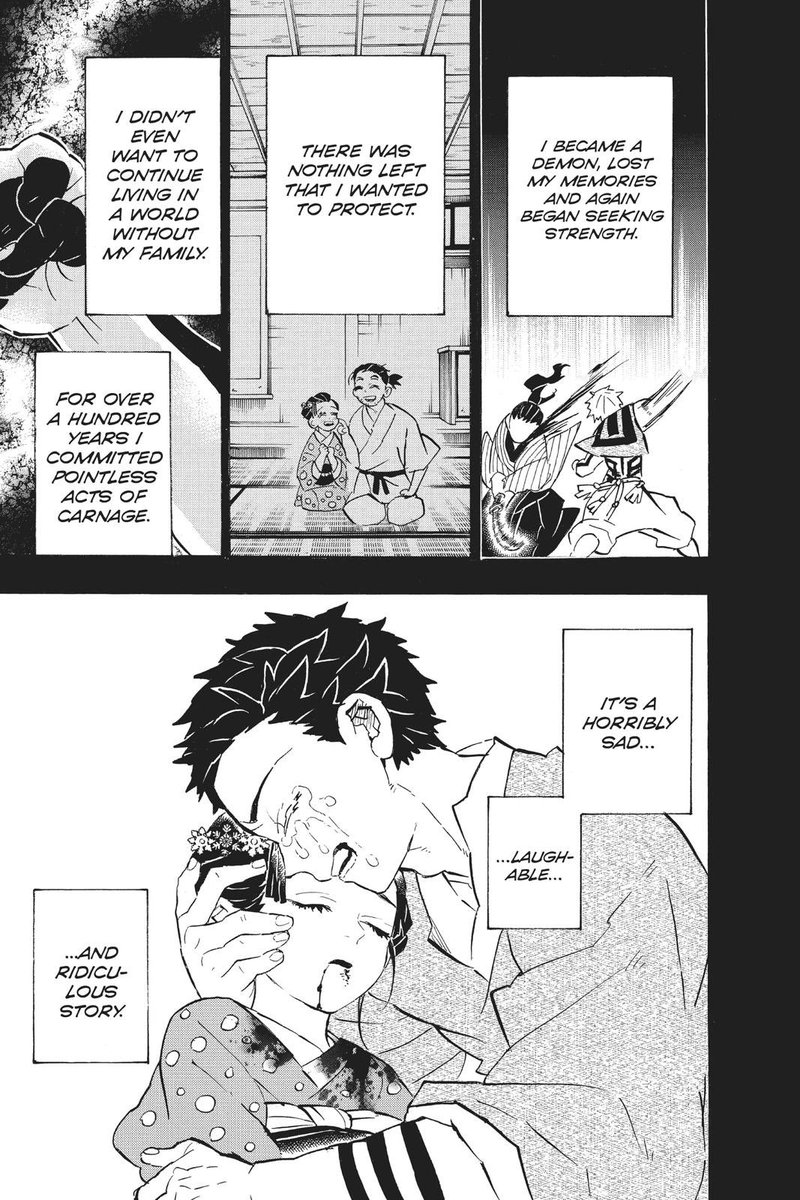this is going to be a collection of thoughts that build off of my previous threads so if you find an element that you’re interested in i recommend looking at the corresponding thread to get a full picture. there is no specific structure to this so just read if you enjoy. +
firstly i’ll touch on the idea of ‘god’ within the narrative because it’s something that gets stressed. ‘god’ is the governing force of the world, all knowing and all powerful, but most importantly still a slave to something.+ 



eren is a ‘slave’ to his nature (chained god, final titan form, and ‘freedom’) and ‘fate’ is created through his own desires (ch 131 + general compatibilism stuff). as rod reiss says there is meaning in every catastrophe but that decision is in the hands of god (eren). + 


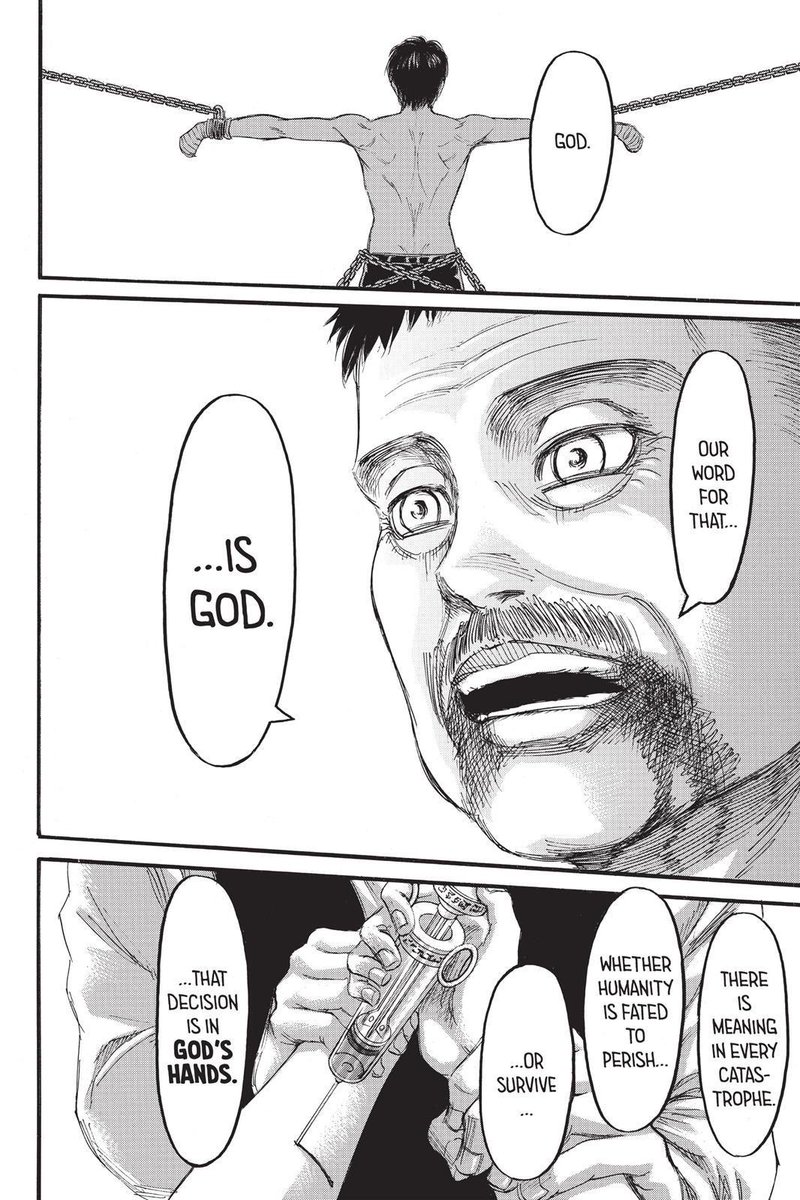
a huge part of aot is based on perspective hence the paradis/marley switch and the reversal of roles throughout the whole series. god encompasses all human experience therefore it’s perfectly written that eren holds within him the duality within every major theme of the story. + 

some examples:
god/devil
selfish/selfless
hope/despair
love/hatred
beauty/cruelty
freedom/slavery
victim/perpetrator (comes full circle by influencing dina and becoming indirectly for his mother’s death). +


god/devil
selfish/selfless
hope/despair
love/hatred
beauty/cruelty
freedom/slavery
victim/perpetrator (comes full circle by influencing dina and becoming indirectly for his mother’s death). +



essentially eren BECOMES existence within the context of AoT through the ft power - emphasised through him living every moment past/present/future simultaneously WITHIN the context of paths (ymir birth to his ‘death’). + 
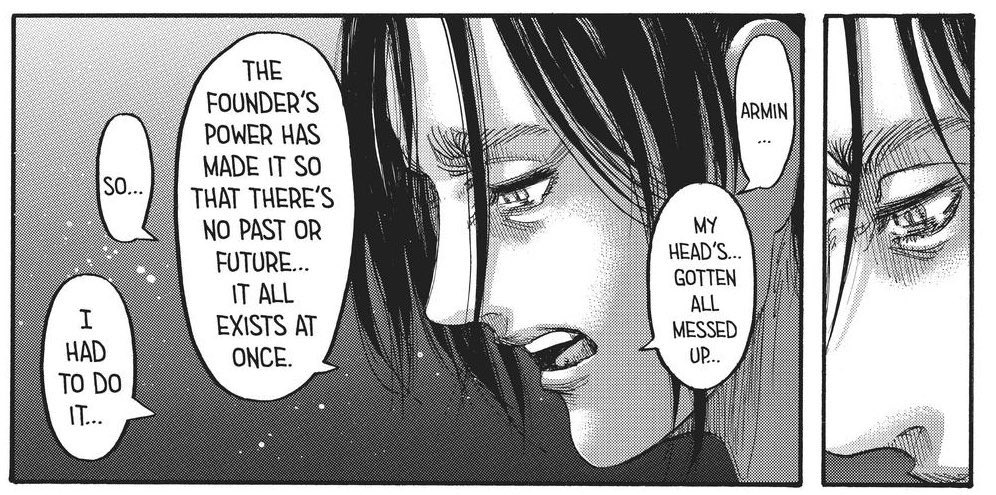
what makes this even better is the structure of the story with chapters 131 and 139 literally happening at the same time. ‘fate’ means nothing changes so being shown it at different times doesn’t change anything except for the MEANING we and the characters take from it. + 

hence stuff like freedom and grounded can only be viewed properly when looked at together to give a full picture. only god (audience in a meta sense) and eren in universe can experience all of them. the ‘truth’ is dependent entirely on perspective and only eren knows all. + 

eren being existence becomes 100x better when you understand the significance of the title of the manga. the translation isn’t ‘attack on titan’, shingeki no kyojin means ‘the attack/advancing titan’ - the manga and everything it entails IS EREN. + 



so every single time the manga is read eren’s existence is looped. the AT is the embodiment of freedom, the embodiment of eren’s innate nature that spans time and space and even all holders of the attack titan are linked to one specific memory where EREN influences the past. + 





It emphasises the importance of CYCLES both for eren and in aot as a whole. As ive mentioned with eren being the cycle in terms of things like victim to perpetrator we see it in other ways. ymir created the ‘story’ of aot by releasing 3 pigs due to her own desire for freedom. + 

how far was eren influenced by ymirs desire for freedom or was it eren who influenced the story from the very start? for the human eren none of this matters because his characterisation is purely about moving forward regardless, but the audience can see their connection. + 

We have two trees, one in ymirs time (2000 years prior) and one (guessing by growth) 2000 years in the future with eren at the very middle of this cycle and literally becoming the second ‘source of life’. the cycle and eren are intrinsically linked (loop emphasised once again). + 



now we look at this panel for narrative evidence, EREN = CYCLE. one quick think about what aot says about the cycle of hatred and you’ll see just how well crafted eren is for this (the manga is him, he is the cycle, he is existence as god, it’s his choice that shaped the world).+ 

then back to what you said about walls. the literal walls are colossal titans and they’re what eren hated as a symbol that he wasn’t free. they also represent the barriers between society/people/communication etc. eren breaks down these walls but never FOR HIMSELF. + 

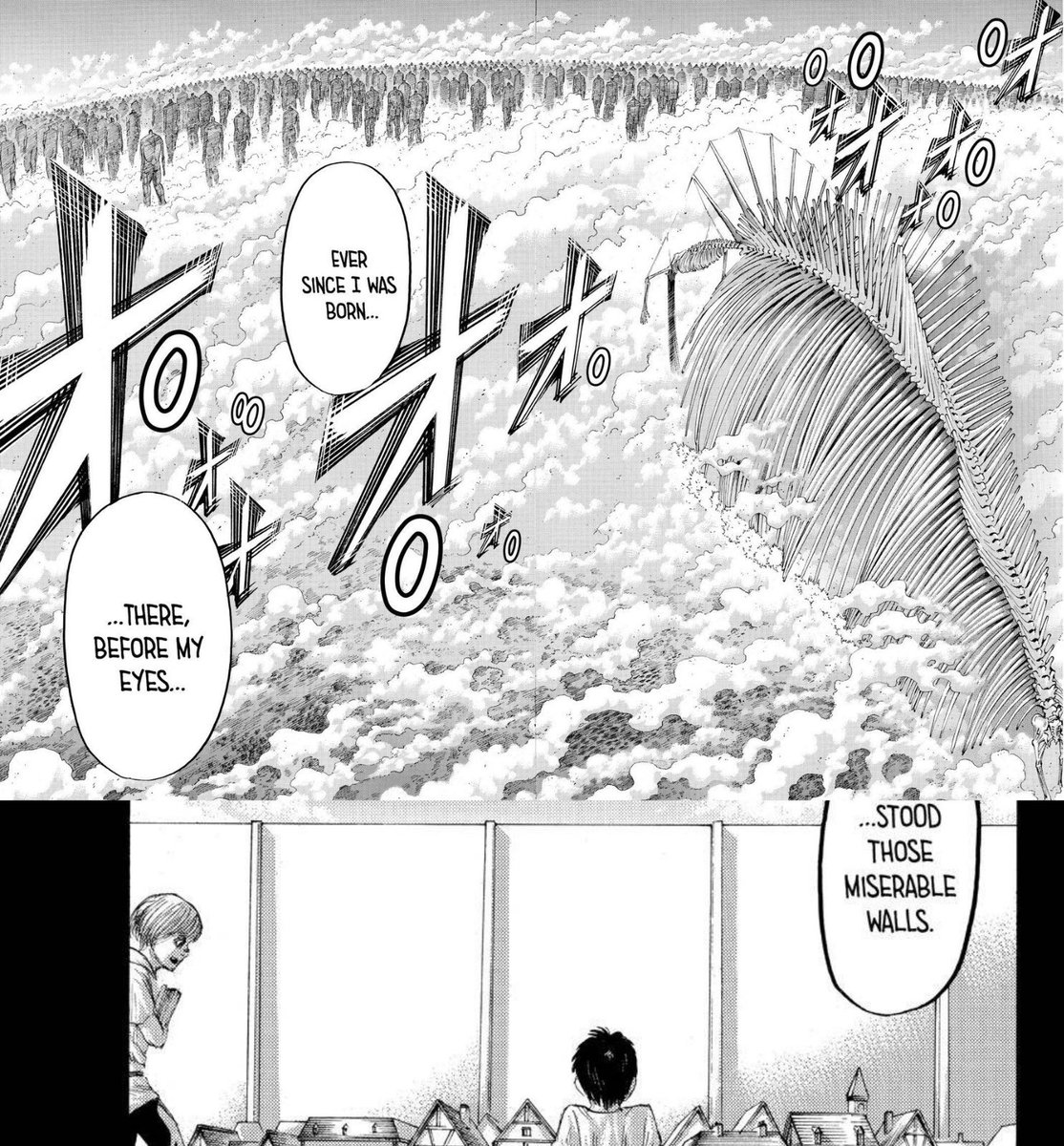

therefore you can further discuss how eren is in a loop in the context of his own existence because he never went ‘beyond the walls’ but meaning DOES exist based on our interpretation that extends beyond his life - EXACTLY what erwin said in his final speech. + 


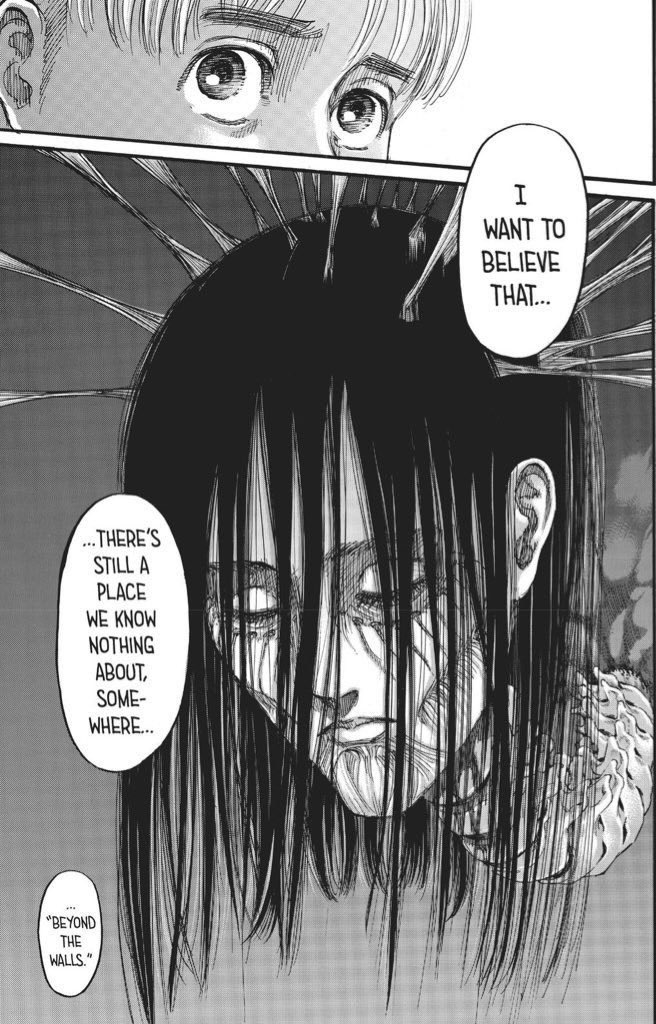


it’s beautifully tragic for eren but a beautiful message to us. eren was ALWAYS special merely because he was born and freedom is a mindset, not a physical entity found through the destruction of others. eren is a cautionary tale within aot and he’s a cautionary tale for us too.+ 





bonds are important, our perception is important, we hold within ourselves the key to achieve ‘freedom’. to emphasis this you can even look at 138 the fake reality of when eren and mikasa abandoned their roles - something the story could never allow but we see the possibility. + 



Eren is symbolically everyone and everything in AOT, as all experiences occur within his ‘loop’ (ch1-138 long dream).
‘i feel like i just woke up from a long dream’ - the dream of existence. +

‘i feel like i just woke up from a long dream’ - the dream of existence. +


Mikasa values him through his memory. Armin finds value and attempts to share that to others through the story of AoT (EREN) as he is the narrator throughout.
‘let’s tell them everything’ as the bird (eren) drops a feather - proof of existence and meaning to us, the audience.+

‘let’s tell them everything’ as the bird (eren) drops a feather - proof of existence and meaning to us, the audience.+


Isayama wanted to end the story with EMA, the same trio that began it and i’m so glad he did. I love attack on titan and these are just further reasons why i find value through a fictional story just like those same characters do - it’s whatever you take away from it.
thanks 🤍
thanks 🤍
instagram.com/lirishfwanime?… lirish gonna be dropping an analysis of eren for instagram soon that will go over some of these ideas with a slightly different spin so if you’re interested in more interpretations i recommend giving him a follow
• • •
Missing some Tweet in this thread? You can try to
force a refresh



